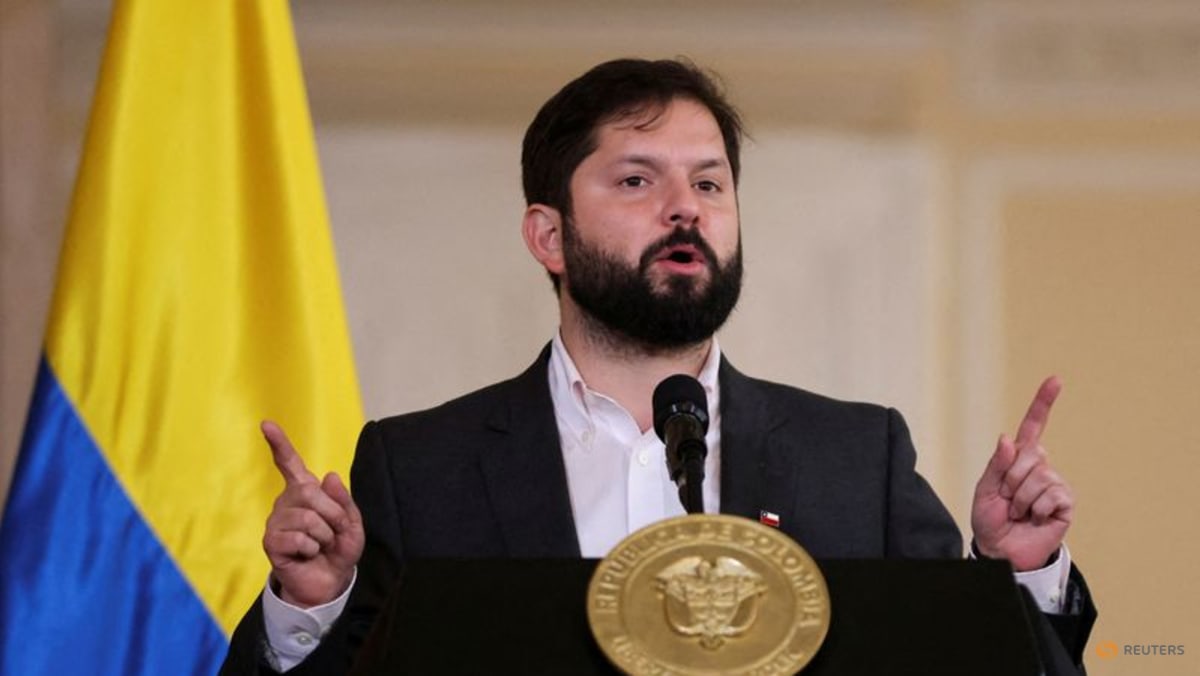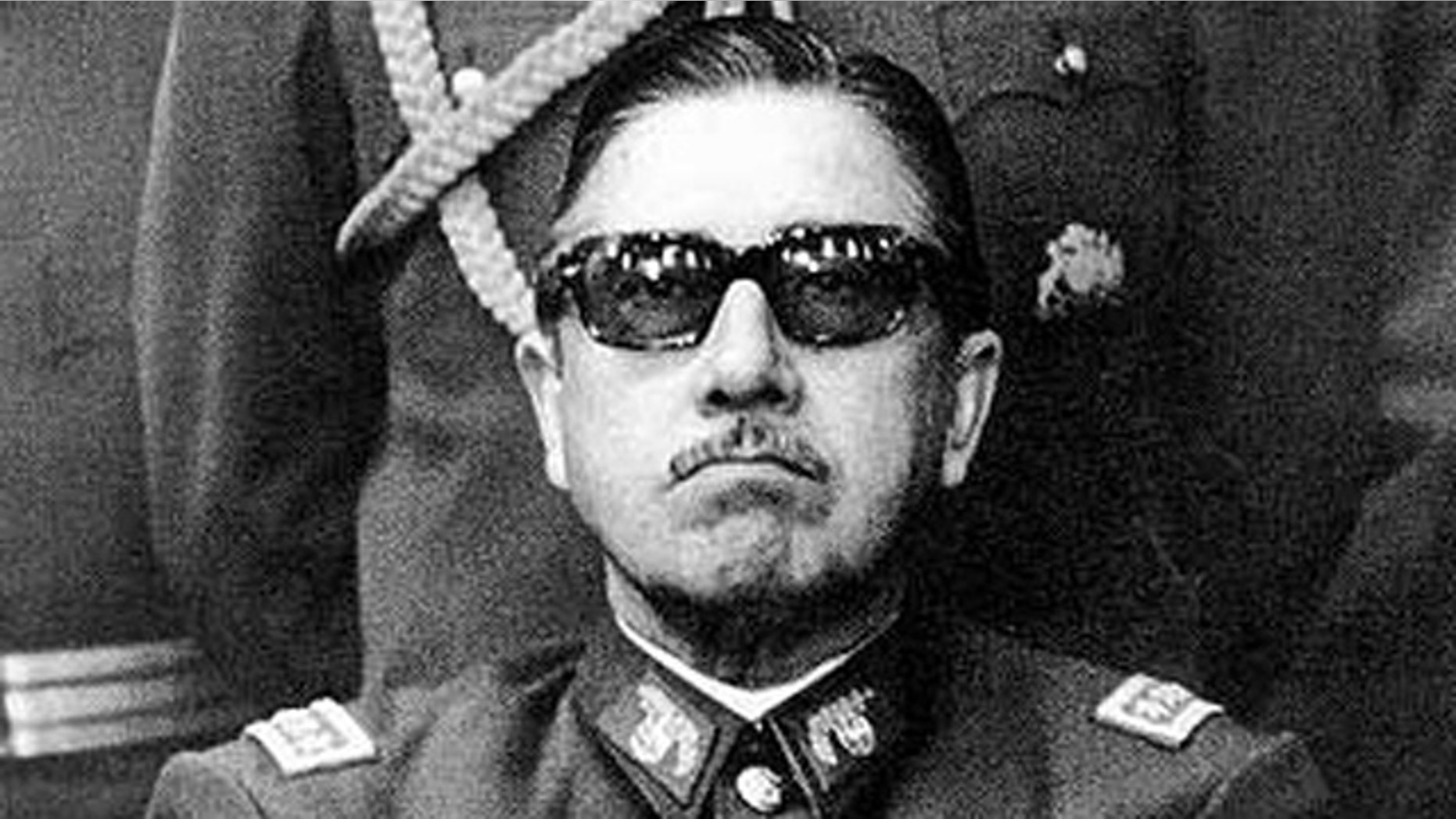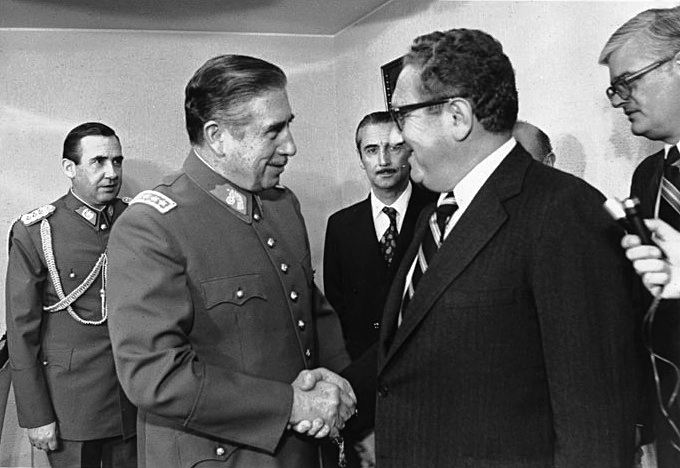
Chile’s new, elected leader, Gabriel Boric, marked the 50th
anniversary of the military coup that toppled Salvador Allende.
Pinochet’s Dictatorship Cast a Lengthening Shadow
Washington should come clean about its key role
in the 1973 Chilean coup d’état as part of iits ongoing
attempts to destabilize leftwing governments
Editorial / The Guardian
(September 11, 2023) — hree decades before the 2001 al-Qaida terror attacks on the US, September 11 was infamous for another bloody event which ended one era of history and brought forth another. The 1973 military coup in Chile installed General Augusto Pinochet as the dictator of a regime that tortured, killed and disappeared thousands in the name of fighting communism.
Salvador Allende, the first socialist in the Americas to take office via the ballot box, killed himself as troops stormed the presidential palace. Under Pinochet, parliament was closed, political parties outlawed, and media outlets shut down. Chile became a test-bed for the “shock therapy” policies of the University of Chicago economist Milton Friedman.
The death of democracy was undoubtedly hastened by the actions of leading powers, including the UK and Australia, but most notably the US. Shamefully, Conservative governments led by Edward Heath and Margaret Thatcher resisted helping Pinochet’s victims because of sympathetic attitudes towards the coup. The Labour governments of 1974-79 ran a more ethical foreign policy, accepting Chilean refugees and imposing sanctions on the junta.
Pinochet cheated justice through death in 2006, though he died in disgrace in Chile after judges charged him with human rights abuses. He spent 16 months of ignominious house arrest in London. But his ghost still hovers over his country. Last month, Chile’s president, Gabriel Boric, formallylaunched the nation’s first plan to search for the victims of forced disappearance and political execution under the dictatorship. Mr. Boric, who invoked Allende in his inauguration speech, is Chile’s most leftwing president since 1973 and rose to power after a “social explosion” against inequality.
An unequal nation has produced polarised politics: Mr. Boric’s main opponent is a far-right Pinochet apologist whose party controls a decisive bloc on the committee the president set up to rewrite Chile’s dictatorship-era constitution. A decade ago, polls suggested that one in eight people in Chile did not see the ousting of a democratically elected leader as wrong.
That’s now more than one in three. Some accept human rights abuses happened under Pinochet but believe these were excused by superior economic performance. This is false. Chile’s free-market transformation should not be considered a success.
In September 1973 this column saw Allende as a “well-meaning man” who failed because he made powerful political enemies, mismanaged the economy and fatally put “ideas into the heads” of generals by appointing them to his cabinet. What was not known then was the extent of a covert US intervention. That only emerged a year later when the head of the CIA admitted spending $8 million (about $45 million in today’s money) between 1970 and 1973 to make it impossible for Allende to govern. Self‑determination was for like-minded friends.
The US government continues to keep secret records about its role. Washington should come clean, as the Chilean coup is seen as part of a decades-long attempt to destabilise leftwing governments in the region.
Clearly US national security doctrine was indifferent to dictatorship and legitimated dirty wars. This was wrong. Washington should say so. The US remains self-interested, inspiring fear in the continent.
Whether it is sanctions on Cuba, claims that aid is being used against the Mexican government or an IMF-forced depreciation in Argentina, the shadows cast by September 11,1973 are lengthening.

The Other 9/11: More Civilians
Died in Chile Coup than in the US Attack
Sarah Gilbert / SBS
September 11 is a date marked by violence and sorrow in the minds of many around the world. For Chileans, it is doubly so, because on that day, in 1973, the country’s democratically elected president, Salvador Allende was overthrown in a brutal military coup. What followed were years of repression, torture, forced disappearance, fear and for many Chileans, exile.
Investigations in Chile have determined that during Pinochet’s reign, more than 3,196 people were killed and some 32,000 tortured. The attacks targeting the US killed 2,977.
To read the whole, multi-chapter report online, click here.
On the morning of September 11, 1973, President Salvador Allende, was secluded in La Moneda, Chile’s Presidential Palace, along with his bodyguards. For weeks there had been mounting political uncertainty, and now, there were soldiers in Santiago’s streets.
The President couldn’t get solid information on what was happening. He knew that earlier that morning, the Navy had taken the port of Valparaiso, north of the capital, but since then the army had shut down several of the city’s television and radio stations and bombed most of the others.
Allende, Chile’s first democratically elected socialist, hoped that only some elements of the armed forces had betrayed him, and that the leadership of the military would uphold the constitution. But within hours the army announced that it had taken control of Chile and that Allende was deposed by a military coup d’état, led by General Augusto Pinochet.
Allende’s Last Words to the Chilean People
Despite the army’s threats that it would blow up La Moneda, the President refused to surrender. Instead, he gave a farewell speech, broadcast on the last radio station still broadcasting.
“I will pay for my loyalty to the people with my life. And I say to them that I am certain that the seeds that we have planted in the good conscience of thousands and thousands of Chileans will not be shrivelled forever.”
When troops entered La Moneda, they found the President dead. He had shot himself (the gun was a present from Fidel Castro) rather than allow the military to arrest him.
As bombs rained down on the presidential palace, Chile’s democracy came to an end.

Henry Kissinger greets General Pinochet after coup.
Nixon, Kissinger and the CIA
Chile had boasted a long and stable democratic tradition in a politically fragile region beset by civil war and dictatorship. But democracy was not to return for 17 years.
President Nixon and his Secretary of State, Henry Kissinger, had been nervous about Allende since well before his election in 1970, as they knew his socialist policies would harm US business interests, like copper mining.
“But they also wanted Allende to fail because they were very afraid that the socialist experiment would be successful and would encourage other left-of-centre parties in a variety of Latin American countries to try the same thing — bring about socialism by democratic means,” says John Dinges, a journalist and author who has written extensively about Chile and who was in Santiago at the time of Pinochet’s coup.
The CIA was funneling cash to Chile’s right-wing media outlets and Allende’s political opponents. But when it looked like he would win the 1970 presidential election, the agency stepped up its covert activities.

A CIA Kidnapping Turns Deadly
General René Schneider, head of Chile’s armed forces, was a constitutionalist, and respected the professional, non-political role of the military. He stood in the way of the military coup that the United States hoped would work as a last-ditch effort to keep Allende out of power.
So in the lead-up to the 1970 elections, the CIA provided machine guns and cash to a group of plotters who planned to kidnap Schneider and send him to Argentina, leaving the way clear for a military takeover.
But the kidnapping went badly wrong, and the General ended up dead.
The CIA rushed to cover its tracks, paying the jailed plotters $53,000 in hush money and throwing the machine guns they’d lent them into the sea.
The army, and Chilean society, upset by the attempt to destroy proper democratic process, rallied around Allende. He was elected on 4 September, 1970.
Now, the US would focus it efforts on undermining Allende’s government.
“They were actually organising a coup in 1970,” says John Dinges, but in the lead-up to 1973, the CIA was “very much in the background, doing things like fomenting the economic subversion, paying off right wingers to do violence in the streets — stuff like that.”
Nixon instructed his administration to “make the economy scream,” and before long, it would.
“The US definitely wanted the economy to fail so that the military would overthrow Allende,” says Dinges. “They promoted an economic blockade, preventing Chile from getting credits from international aid associations like the World Bank and the IMF.”
Meanwhile, nervous that Allende had them under close watch and that he may close the US embassy, removing their cover, the CIA called on its friends and allies to help out….
To read the whole, multi-chapter report online, click here.
Posted in accordance with Title 17, Section 107, US Code, for noncommercial, educational purposes.